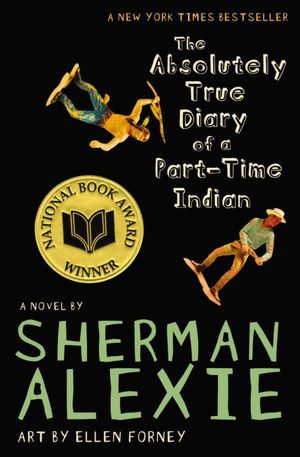I’m late to the game reading The Absolutely True Diary of a Part-Time Indian… and now I know what all the fuss is about. It’s wonderful. This passage will put a lump in the throat of any teacher…
“Do you understand how amazing it is to hear that from an adult? Do you know how amazing it is to hear that from anybody? It’s one of the simplest sentences in the world, just four words, but they’re the four hugest words in the world when they’re put together.”
I’m sure you guessed. The four words are: “you can do it”. Despite sentiment like this, the book’s been banned in a few places in the U.S. — probably for laugh out loud moments like this one when the narrator says to one of his teachers:
“I used to think the world was broken down by tribes,’ I said. ‘By Black and White. By Indian and White. But I know this isn’t true. The world is only broken into two tribes: the people who are assholes and the people who are not.”
There is also some sexual content that might offend some readers. Don’t be put off. As a story of resilience, bravery, and loyalty The Absolutely True Diary of a Part-Time Indian can’t be beat. In the place of or alongside Catcher in the Rye or Lord of the Flies the novel would be a great addition to a group novel study unit.






